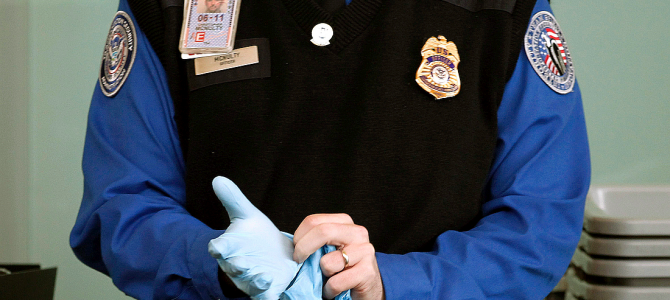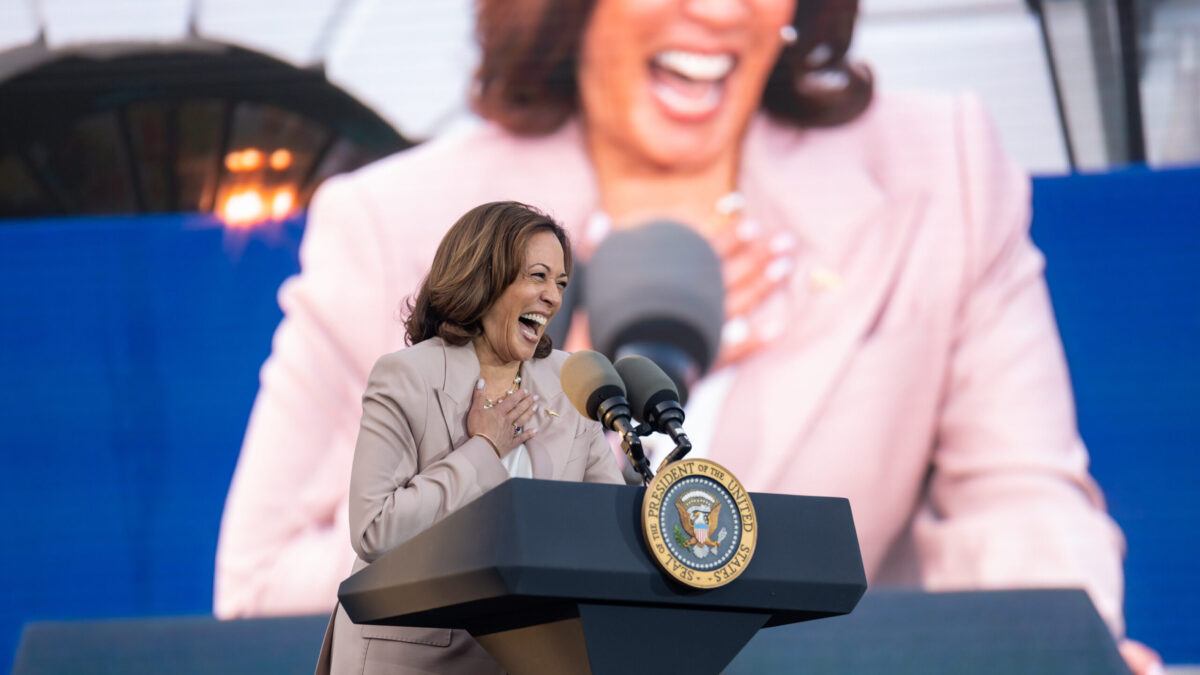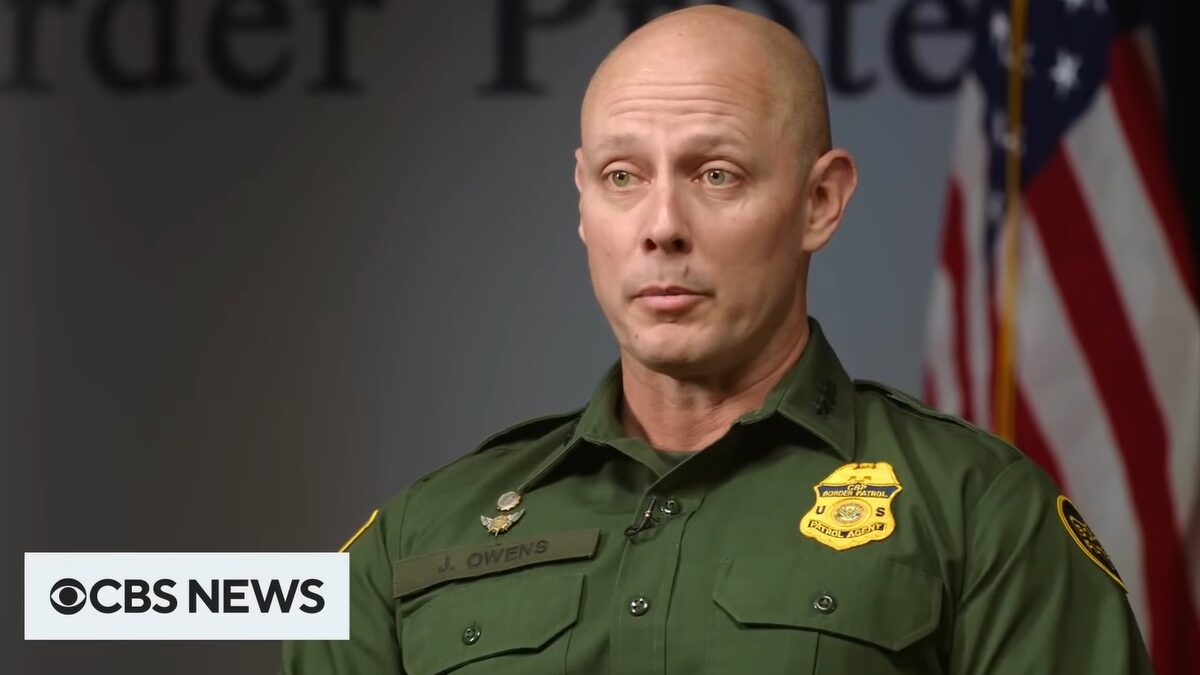
A new Department of Homeland Security report finds the Transportation Security Agency has “not yet resolved” problems with data management and airport security cameras, as TSA doesn’t believe they are responsible for them. In an attached letter, DHS Inspector General John Roth accused TSA of “abusing its stewardship” and said it “cannot be trusted.”
While the TSA can be efficient—I flew over the holidays with my kids and went through security without a hitch—often they are not. In fact, they make travel security not just cumbersome, but ineffective. It’s time they made some significant changes to the way they implement security at airports.
The TSA Often Abuses Americans’ Rights
In this tweet with an accompanying video, a female TSA agent pats down passenger Angela Rye in a way that’s so intimate and invasive, it seems downright absurd. Frustrated and likely humiliated, Rye begins to cry toward the end.
Likewise, recently a young man attempted to walk through security with a large stuffed bear. TSA deemed the bear too large so they confiscated it, then Instagrammed about it, basically bragging they’d snatched the bear. While the Instagramming turned out to be a prank, that doesn’t change the TSA’s overreaction to a young person trying to board a plane with a stuffed animal the size of a person.
But are any of these searches even constitutional? Can the TSA just grab your body parts, your stuffed animal parts, and pat, wipe, grope, or confiscate them at will, even in the name of national security? Many people think the TSA’s protocols violate the Fourth Amendment, which states: “The right of the people to be secure in their persons, houses, papers, and effects, against unreasonable searches and seizures, shall not be violated, and no Warrants shall issue, but upon probable cause, supported by Oath or affirmation, and particularly describing the place to be searched, and the persons or things to be seized.”
In United States v. Hartwell, the Third Circuit Court decided the Fourth Amendment and administrative search precedent allows for “minimally invasive” searches without a warrant. Justice Samuel Alito wrote the opinion which, in part, states, “escalating in invasiveness only after a lower level of screening disclosed a reason to conduct a more probing search” (emphasis mine).
In Rye’s case, the TSA has not disputed the claim that it randomly flagged her for additional screening. Her pat-down should never have happened, because she had already had the minimally invasive search. The TSA policy of random pat-downs following no flagging, which happens frequently, needs to be put through a strenuous legal test.
The TSA Is Intrusive and Ineffective
Constitutionality aside for a moment, TSA isn’t even good at what they do. Grant it, nobody has flown a plane into a building since September 11, 2011, thanks be to God, but this doesn’t let them off the hook. Remember last year an internal investigation showed TSA Red Team members were able to get past security with hidden weapons and explosives on 67 out of 70 occasions, a terrible ratio by anyone’s standards.
If TSA searches often violate the Fourth Amendment without yielding security benefits to the country, they need to make changes to their safety procedures. One option is to apply supply and demand realities to airports and remove the TSA altogether. Allow airlines to provide as much security as they see fit and let consumers decide where they feel safest.
Inevitably, some airlines would offer full pat-downs, naked scanners, and the like while others might take a less invasive approach to security. After all, in the automotive field cars get safety test ratings after all, and when they get bad ones people generally purchase others until they improve. However, there are problems with this, as economist Tyler Cowen wrote in a 2010 post on the topic:
It’s worth asking how intrusive a search markets would provide, but keep in mind there are significant negative externalities from exploding airplanes and also there are government bailouts which limit the downside. Furthermore companies do not always care enough about ‘extreme negative skewness,’ as we have learned in financial markets and thus there is a case for regulating a tougher security standard. It’s not clear what the freedom-enhancing path looks like and there is no default setting of market accountability. It’s ‘elephant interventions’ all the way down.
Cowen makes salient points: the market isn’t always predictable. Does one want to take the risk of sending this serious an issue out to the private sector when an entire nation’s security is on the line? Cowen concludes: “For airline security, at times we want to treat it as a matter of mere law enforcement, to be handled by others, and one which should not inconvenience our daily lives or infringe on our rights. At the same time, so many Americans view airline security as a vital matter of foreign policy and indeed as part of a war. We own and promote this view and yet we are outraged when asked to behave as one might be expected to in a theater of war.”
We Could Also Profile, Like Israel Does
A third option, beyond keeping the status quo or trading the TSA for private security, is to meet in the middle and demand the TSA radically change its procedures. This would require a philosophical shift from within the organization.
Israel provides an excellent example of this type of shift. Since 1972, there have been no successful attacks on Israeli air traffic. In Israel, people are not subject to long security lines, aggressive pat-downs, or nude body scanners—unless you look like you don’t belong in Israel. Then people are.
This is not politically correct and would be much more difficult to pull off in a country that boasts itself a melting pot of ethnicities—what does an American look like? However, with guidelines, it could be done. It’s worth noting that 20 percent of Israel’s population is Arab. If this were our aim, with significant strategy and effort, federal measures could be specified, tweaked, then carried out as stringently as they are in Israel.
This subhead of this opinion in Haaretz plainly states, “While other democracies hesitate to resort to racial profiling, Israel takes the practice for granted.” The piece describes how some passengers can travel with small amounts of liquid while others can’t, based simply on how travelers look, speak, and describe their travel intentions.
“To Israelis, the practice of picking people out based on racial stereotypes is so self-evident, there isn’t even a Hebrew term for it,” the piece continues. “…While governments and citizens of other democracies are dealing with the question of whether they are prepared to live with the chance that their principles and freedoms could lead to a bomber actually managing to activate their hidden device, in Israel that decision has been made for us long ago.”
Have we also reached the point in America where terrorists have made that decision for us? Our existential threats are less severe, but growing all the time. Perhaps counterbalanced against the senseless frustration and lack of safety increase TSA’s procedures inflict on us, it’s time we demand the TSA make some significant changes in security protocol.








